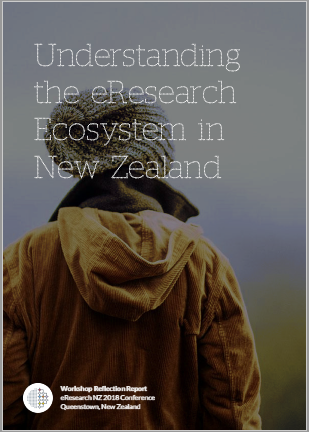Open to taking a wider view of advanced research computing
Across industries we hear the rate of disruption by digital technologies is increasing, and for some it is exponential. In the research sector, our communities can lay claim to inventing many such technologies, such as the Internet and the World Wide Web.
Despite this innovativeness, as a sector we are challenged in adopting and diffusing the latest and greatest digital technologies within our own research communities. We exist as mostly small communities with highly specialised needs. Meeting these often requires upskilling in areas outside our expertise, and a retooling of our research methods. We are rightly careful in accepting significant risk to our research practices and work.
Realising a national advanced computing platform
Over the last 7 years NeSI has grown the cohort of researchers we support 10 fold, from ~70 to ~700, providing world class high performance computing platforms supported by specialist training and a highly rated service desk. Team members were often early career researchers who shifted career paths and now support research through their own expertise in advanced research computing.
Recently, we've been commissioning the most advanced high performance computing platform New Zealand has ever seen, which is now opening up to researchers across New Zealand. Co-designed with local researchers and global technologists, this platform offers world-leading capabilities, performance, and scale, alongside new and exciting opportunities to a much larger cross section of New Zealand's researchers.
A shared view of the ecosystem
With this new advanced platform now in place, we are looking out 7 years at how we best position NeSI to power the research of tomorrow and beyond. To achieve the same order of magnitude increase in use will be more challenging, and yet everywhere we go we see aspirations to reach far beyond where we are today.
We're looking to build our view of a future for NeSI through working with researchers to understand their aspirations and goals. We are considering NeSI's role in the broader context of the research system alongside research institutions, other research infrastructures, and commercial providers. We're aiming to optimise our investment into supporting research, in this broader context.
Earlier in 2018 we kicked off consultation with an eScience Futures Workshop at eResearch NZ 2018. It can be near impossible for those without a long association with a research sector to appreciate the ecosystem of technologies and providers underpinning research activities. Our intent was to shine a light on the varied aspects of our advanced research computing ecosystem, to encourage broader future-oriented perspectives.
We are now releasing a reflection report from this eScience Futures Workshop, to document a view of the advanced research computing ecosystem we refined during that meeting. The report introduces key elements of an eScience value chain, describing these elements and outlining key trends in a global context. This common language and frame of reference forms the base upon which we'll build additional insights.
![]() eScienceFuturesWorkshop-ReflectionReport.pdf
eScienceFuturesWorkshop-ReflectionReport.pdf
Looking to the future of research powered by advanced computing
Currently, our work is focusing on three key considerations:
- The future needs for advanced research computing of national research communities are often unstated and invisible to those outside any community. Posing a question of longer term needs is often required before they're given proper consideration. Meanwhile specialised investments in advanced research computing should be driven by and co-designed with research communities.
- Research exists within a global context, with each nation having a unique ecosystem of advanced research computing investments, providers, and capabilities. There is much for any nation to learn from reviewing these strategies, outcomes, and lessons learnt.
- Often, a network of stakeholders and investors underpins national advanced research computing capabilities. Institutional objectives and incentives often operate in a fine balance with national aspiration and shared intent. Investment incentives need to be aligned in order to realise shared goals.
NeSI are working to inform our future business case across these three areas, for our continued operations from 1 July 2019.
Our work to date reminds us of how diverse and talented our researchers are, and of how varied are their aspirations.
Meanwhile in the global context we are seen to have made smart investment decisions, and our small scale is seen as an advantage.
However we can learn much more from the many others on similar journeys, and our time is best spent understanding how to tailor insights to fit our local circumstances. We look forward to sharing these further insights over the coming months.






